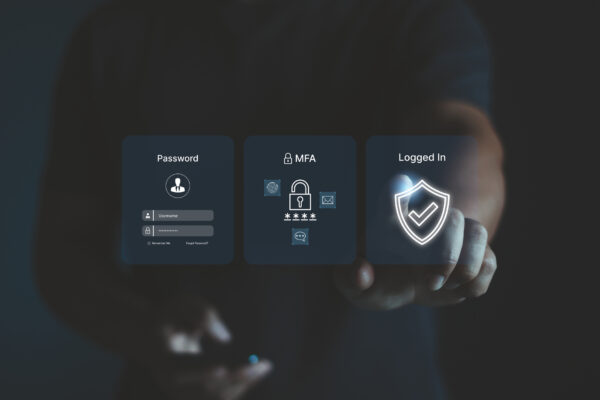
Multi-Factor Authentication (MFA) is a security measure that requires users to provide two or more verification factors to access systems, accounts, or applications. It significantly enhances security compared to traditional single-password authentication, making it harder for attackers to gain unauthorized access. For small and large businesses alike, MFA has become a cornerstone of digital security, offering robust protection against the ever-evolving threat landscape.
What is MFA?
MFA adds extra layers of security by combining multiple factors to verify a user’s identity. These factors typically fall into three categories:
- Something You Know: A password, PIN, or security question.
- Something You Have: A physical device like a smartphone, security token, or smart card.
- Something You Are: Biometric data such as a fingerprint, face recognition, or voice.
For instance, logging into an account might require entering a password (something you know) and confirming a code sent to your mobile device (something you have). Advanced implementations may also incorporate biometric scans (something you are) for added security.
How MFA Can Save Your Business
- Prevents Unauthorized Access Cybercriminals constantly look for ways to breach systems. Even if an attacker steals a password through phishing or other means, they cannot access systems without the additional authentication factor(s). This is particularly important for protecting sensitive business data, customer records, and financial accounts.
- Reduces Phishing Risks Phishing scams are one of the most common methods attackers use to steal credentials. MFA renders stolen passwords useless, as attackers would still need the second factor—such as a one-time code or biometric verification—to gain entry.
- Secures Remote Work Environments The rise of remote work has expanded the attack surface for cyber threats. MFA ensures that employees accessing company systems from home or while traveling are verified through multiple layers, reducing the risk of unauthorized access.
- Complies with Regulatory Standards Many industries, including healthcare, finance, and e-commerce, mandate MFA for compliance with data protection regulations such as GDPR, HIPAA, or PCI DSS. Implementing MFA helps businesses avoid fines, legal complications, and reputational damage while ensuring they meet security standards.
- Minimizes Financial Losses Cyberattacks can be costly, involving legal fees, lost productivity, damage to reputation, and potential fines. By preventing breaches, MFA saves businesses from the high costs associated with recovery and mitigation.
- Boosts Customer and Partner Trust Adopting strong security measures like MFA demonstrates your commitment to protecting sensitive information. This can strengthen trust with customers and partners, enhancing your reputation as a secure and reliable business.
Additional Benefits of MFA
- Ease of Implementation: Modern MFA solutions are easy to deploy and integrate with existing systems. Many services offer plug-and-play options, making it accessible even for smaller businesses.
- Adaptability to Threats: MFA can be updated to include newer technologies, such as adaptive authentication, which assesses user behavior patterns to determine if additional verification is needed.
- Improved Employee Awareness: Implementing MFA often includes employee training on security best practices, further reducing the likelihood of breaches caused by human error.
Implementing MFA in Your Business
Adopting MFA is straightforward with the right tools and strategy:
- Evaluate Your Needs: Identify critical systems, such as email, CRM platforms, and financial accounts, that require additional protection.
- Choose the Right Methods: Select authentication methods that balance security and user convenience, such as push notifications, app-based tokens, or biometric scans.
- Educate Your Team: Train employees on the importance of MFA and how to use it effectively to reduce resistance and ensure seamless adoption.
- Regularly Update Policies: Cyber threats evolve rapidly. Periodically review and update your security policies and MFA implementations to address new vulnerabilities.
Conclusion
MFA is a simple yet powerful tool that protects businesses from increasingly sophisticated cyberattacks. By implementing it, you can secure sensitive information, protect your reputation, and ensure uninterrupted operations. In today’s digital landscape, MFA is not just an option—it’s a necessity. It offers a practical, scalable solution that keeps your business, employees, and customers safe in an era where security is paramount.
